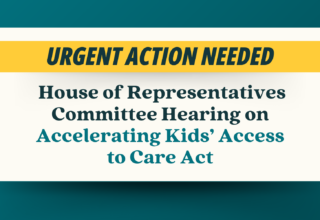When your child is diagnosed with a brain tumor, you may have a lot of questions, and the Pediatric Brain Tumor Foundation and your child’s doctors are here to help you find answers.
The pediatric brain tumor journey is complicated, and all the new information and terms can be overwhelming. As your child’s parent or caregiver, you’re an expert on your child and an important member of their healthcare team. It’s important to listen carefully, keep asking questions if you don’t understand something, and speak up when you have concerns.
Below are five questions to ask the doctor to help you learn more about your child’s brain tumor and decide on a treatment option. Looking for more information and resources? PBTF is here to support you from the moment symptoms start: www.curethekids.org/stay-connected.
1. What can you tell me about the kind of tumor my child has and how it responds to treatment?
Your doctor can provide information about the size and location of the tumor after looking at the first MRI or CT scans. During surgery, a pathologist will look at some of the tumor under a microscope to learn more about the type. More tests will be done on the tumor tissue after surgery. These tests take around 1-2 weeks to complete the diagnosis.
2. Will tumor tissue be sent for molecular testing?
Your doctor may order molecular testing (a type of testing that checks for changes in genes often found in specific kinds of tumors) to learn about the DNA of the tumor cells. This may give the medical team important information about the kind of treatment that could work best against your child’s tumor.
3. Why are you recommending the surgery or treatment you’re recommending? What are the likely risks and side effects? What other options should I think about?
Not every brain tumor is treated the same way. Most patients need surgery, but not all do. Many need radiation, but not all do. The same is true of chemotherapy. Ask questions until you understand as much as you want to understand before deciding.
4. How quickly do we need to decide about treatment?
It is important to know the timeline of when you must decide on your child’s treatment. Consider the potential risks, side effects, and what would be best for your child as you decide.
5. How do I get a second opinion?
Asking for a second opinion is always an option, especially when you’re not sure what decision to make about treatment. Your doctors should understand and respect this decision and can make recommendations for a second opinion. Make sure the second doctor or hospital gets all the information they will need, including the doctor’s summary, scans of the tumor, and any pathology reports. If a second opinion differs from the first, you may wish to ask for a third opinion.
You are not alone on your family’s brain tumor journey. PBTF offers information, tools and resources, and emotional support to help you navigate the road ahead and advocate for your entire family. Sign up today to learn more about our resources and ways to connect with other families who have experienced a pediatric brain tumor diagnosis.


